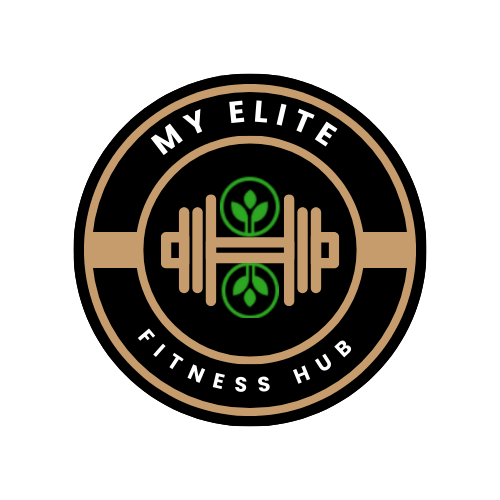
Workout Nutrition Tips for Optimal Performance and Recovery
In the quest for fitness results, we often focus intensely on training programs and exercise selection. Yet at My Elite Fitness Hub, we recognize that workout nutrition—what you consume before, during, and after exercise—can be just as critical to your success as the training itself. Strategic nutrition timing and composition directly impacts your energy availability, performance capacity, recovery efficiency, and ultimately, your results.
Whether you’re a dedicated athlete, weekend warrior, or fitness enthusiast, understanding how to fuel your body for optimal performance and recovery can dramatically enhance your training outcomes. Let’s explore the science-backed nutrition strategies that can elevate your fitness journey.
Pre-Workout Nutrition: Setting the Stage for Success
What you consume before training directly impacts your performance potential and exercise experience.
Timing Considerations
The ideal pre-workout meal timing depends on meal size and composition:
- 3-4 hours before: Complete meals containing protein, carbs, and moderate fat
- 1-2 hours before: Smaller meals or substantial snacks with protein and carbs, limited fat
- 30-60 minutes before: Light, easily digestible snacks primarily from carbs with minimal protein
- 15-30 minutes before: Liquid nutrition or very small, quick-digesting carb sources
Macronutrient Strategies
Carbohydrates: Your Primary Performance Fuel
Carbohydrates serve as the body’s preferred energy source during moderate to high-intensity exercise:
- Amount considerations: 0.25-0.5g per pound of body weight (varying based on workout duration and intensity)
- Type selection: Focus on easily digestible sources closer to workout time
- Glycemic impact: Higher GI carbs may benefit pre-workout timing for quick energy availability
Best sources: Rice, oats, potatoes, fruits, rice cakes, bread, sports drinks (timing-dependent)
Protein: Setting the Foundation for Recovery
Including protein pre-workout provides several advantages:
- Amino acid availability: Ensures amino acids are present in the bloodstream during training
- Muscle protein breakdown reduction: Helps minimize exercise-induced catabolism
- Recovery head start: Begins the recovery process before workout damage occurs
Optimal amount: 15-30g of high-quality, easily digestible protein
Best sources: Whey protein, egg whites, lean poultry, low-fat Greek yogurt (timing-dependent)
Fats: Strategic Consideration
Fat intake requires careful pre-workout consideration:
- Timing awareness: Limit fat intake closer to workout time as it slows gastric emptying
- Exercise duration factor: Higher fat intake may benefit very long duration activities (3+ hours)
- Individual tolerance: Some people handle pre-workout fat better than others
Best sources when appropriate: Nut butters (small amounts), avocado, olive oil (in modest quantities)
Pre-Workout Nutrition by Training Type
Different workout styles benefit from tailored approaches:
Strength Training Focus
- Carbohydrate emphasis: Moderate (0.25-0.3g per pound)
- Protein importance: Higher (25-30g)
- Meal timing: 1-2 hours pre-workout ideal
- Example meal: 1 cup Greek yogurt with 1 banana and 1 tablespoon honey
Endurance Training Focus
- Carbohydrate emphasis: Higher (0.3-0.5g per pound)
- Protein importance: Moderate (15-25g)
- Meal timing: 2-3 hours for longer sessions, carb “top-off” 30 minutes before
- Example meal: Oatmeal with banana, berries, and whey protein
HIIT/Metabolic Conditioning
- Carbohydrate emphasis: Moderate, easily digestible sources
- Protein importance: Moderate (15-20g)
- Meal timing: 1-2 hours before, or liquid nutrition closer to workout
- Example meal: Smoothie with fruit, whey protein, and a small amount of oats
During-Workout Nutrition: Sustaining Performance
For most general fitness enthusiasts doing sessions under 60 minutes, water may be sufficient during workouts. However, specific scenarios benefit from intra-workout nutrition:
When Intra-Workout Nutrition Matters
- Extended sessions: Workouts lasting beyond 60-90 minutes
- Two-a-day training: Multiple daily training sessions
- Glycogen-depleted states: Training in a fasted state or after prior intense exercise
- Environmental factors: Training in extreme heat or humidity increasing fluid and electrolyte needs
Carbohydrates During Exercise
- Endurance benefit: 30-60g carbohydrates per hour for sessions exceeding 60-90 minutes
- Performance impact: Can maintain higher training intensity in longer sessions
- Source considerations: Easily digestible, quick-absorbing options preferred
- Mixed carbohydrate advantage: Combining glucose and fructose sources can enhance absorption
Best sources: Sports drinks, gels, easily digestible carb sources, dextrose, highly branched cyclic dextrin
Hydration Components
- Fluid requirements: 16-32oz per hour depending on sweat rate, temperature, and humidity
- Electrolyte importance: Sodium and potassium help maintain hydration status and prevent cramping
- Absorption enhancers: Small amounts of carbohydrates improve water absorption
Best sources: Water, electrolyte drinks, sports beverages with appropriate carbohydrate concentration
Protein During Extended Exercise
- Benefit threshold: Primarily valuable during sessions exceeding 2 hours
- Recommended amount: 5-10g per hour in extended training
- Amino acid focus: BCAAs or EAAs may be beneficial during fasted training
Post-Workout Nutrition: Maximizing Recovery
The post-exercise period represents a critical window for accelerating recovery and adaptation.
The Recovery Window
While the strict “anabolic window” concept has evolved, post-workout nutrition timing still matters:
- Protein synthesis opportunity: Elevated for 24+ hours post-resistance training
- Glycogen resynthesis rate: Highest within first 30-120 minutes post-exercise
- Practical approach: Aim to consume nutrition within 2 hours post-workout, with priority increasing:
- If training fasted
- If not eating pre-workout
- When training multiple times per day
- For those with body composition goals
Protein: The Recovery Foundation
- Optimal amount: 20-40g high-quality protein (based on body size and training type)
- Leucine threshold: Ensure at least 2-3g leucine to maximally stimulate muscle protein synthesis
- Digestibility factor: Faster-absorbing sources may offer advantages post-workout
Best sources: Whey protein, lean meats, egg whites, Greek yogurt, plant protein combinations
Carbohydrates: Replenishing Energy Stores
Carbohydrate needs vary significantly based on activity type and individual goals:
- Strength/hypertrophy focus: 0.25-0.5g per pound of body weight
- Endurance recovery: 0.5-0.7g per pound of body weight
- Multiple daily sessions: Higher priority on immediate carbohydrate intake
- Body composition goals: May moderate carbohydrate amount while ensuring adequate protein
Best sources: White rice, potatoes, fruits, dextrose (for speed), oats, whole grains
Micronutrients and Antioxidants
Often overlooked, these play critical roles in the recovery process:
- Inflammation modulation: Certain antioxidants help manage exercise-induced inflammation
- Metabolic recovery support: B vitamins facilitate energy production and recovery
- Electrolyte replenishment: Replace minerals lost through sweat
- Immune function protection: Vitamin C and zinc support immune response after intense exercise
Best sources: Colorful fruits and vegetables, green leafy vegetables, berries, tart cherries
Hydration: The Foundation of Performance
Proper hydration impacts every aspect of training performance and recovery:
Pre-Exercise Hydration
- Preparation timing: Consume 16-20oz of fluid 2-3 hours before exercise
- Pre-workout top-off: Additional 8oz about 15-30 minutes before training
- Electrolyte consideration: Adding sodium helps retain fluid and maintain plasma volume
During-Exercise Fluid Replacement
- Sweat rate awareness: Replace 50-80% of sweat losses during activity
- Practical approach: Aim for 16-32oz per hour for most training scenarios
- Palatability factor: Lightly flavored beverages typically increase consumption
Post-Exercise Rehydration
- Replacement guideline: Consume 16-24oz per pound of body weight lost
- Sodium inclusion: Adding sodium (500-700mg per liter) improves rehydration efficiency
- Verification method: Urine should return to pale yellow within several hours
Supplement Considerations for Performance and Recovery
While whole foods should form the foundation of your nutrition strategy, certain supplements offer specific benefits:
Performance Enhancers
- Creatine monohydrate: Enhances high-intensity performance, power output, and training volume
- Caffeine: Improves endurance, strength, and perceived exertion at doses of 3-6mg/kg
- Beta-alanine: Buffers acid buildup during high-intensity exercise
- Citrulline malate: May enhance blood flow and reduce muscle soreness
Recovery Supporters
- Whey protein: Convenient, high-quality protein source for muscle repair
- Tart cherry juice: Reduces inflammation and muscle soreness
- Omega-3 fatty acids: Support inflammation management and joint health
- Magnesium: Facilitates muscle relaxation and recovery
Nutrition Strategies for Specific Goals
Body Composition Improvement
- Caloric awareness: Create appropriate deficit while maintaining performance
- Protein priority: Higher protein intake (0.8-1g per pound) preserves lean mass
- Carbohydrate timing: Focus around training for performance while moderating overall intake
- Strategic fasting: Consider training fasted occasionally if it aligns with preferences and goals
Performance Maximization
- Energy availability: Ensure sufficient calories to support training demands
- Carbohydrate periodization: Match carbohydrate intake to training demands by day
- Recovery prioritization: Use nutrition to minimize recovery time between sessions
- Individual optimization: Experiment with timing and composition to find personal performance nutrition sweet spots
Muscle Building Focus
- Caloric surplus: Maintain moderate surplus (10-20% above maintenance)
- Protein distribution: Spread 4-5 protein feedings throughout the day (20-40g each)
- Leucine focus: Ensure each meal contains sufficient leucine to trigger muscle protein synthesis
- Carbohydrate adequacy: Provide sufficient carbs to fuel intense training and recovery
Practical Application: Creating Your Nutrition Plan
Assess Your Current Approach
Before making changes, evaluate your current nutrition strategy:
- Track performance metrics and recovery indicators
- Note energy levels during different workout types
- Assess hunger, satisfaction, and digestion around training
- Review current pre/during/post workout nutrition practices
Implement Systematic Changes
Rather than overhauling everything at once:
- Start with post-workout nutrition optimization
- Refine pre-workout approach based on training type
- Consider during-workout nutrition for longer sessions
- Adjust overall daily nutrition to support training goals
Monitor and Adjust
The most effective nutrition strategy is personalized through careful observation:
- Track performance metrics to identify improvements
- Note recovery quality and DOMS (delayed onset muscle soreness)
- Assess energy levels and training quality
- Make one change at a time to identify effects
The Bottom Line: Personalized Nutrition Timing
At My Elite Fitness Hub, we recognize that while scientific principles guide nutrition recommendations, individual factors significantly influence the optimal approach:
- Digestive variability: Some people process certain foods better than others
- Training adaptations: Nutritional needs evolve as fitness improves
- Goal specificity: Different objectives require tailored approaches
- Schedule constraints: The best nutrition plan is one you can consistently follow
Remember that workout nutrition should enhance your training experience, not detract from it. Start with these evidence-based guidelines, then refine your approach based on your body’s feedback, preferences, and specific goals.
By strategically fueling your body before, during, and after exercise, you create the optimal internal environment for performance, recovery, and results—turning good workouts into great ones, and helping you achieve your fitness goals more effectively and efficiently.
What’s your next workout, and how will you fuel it for success?

0 Comments